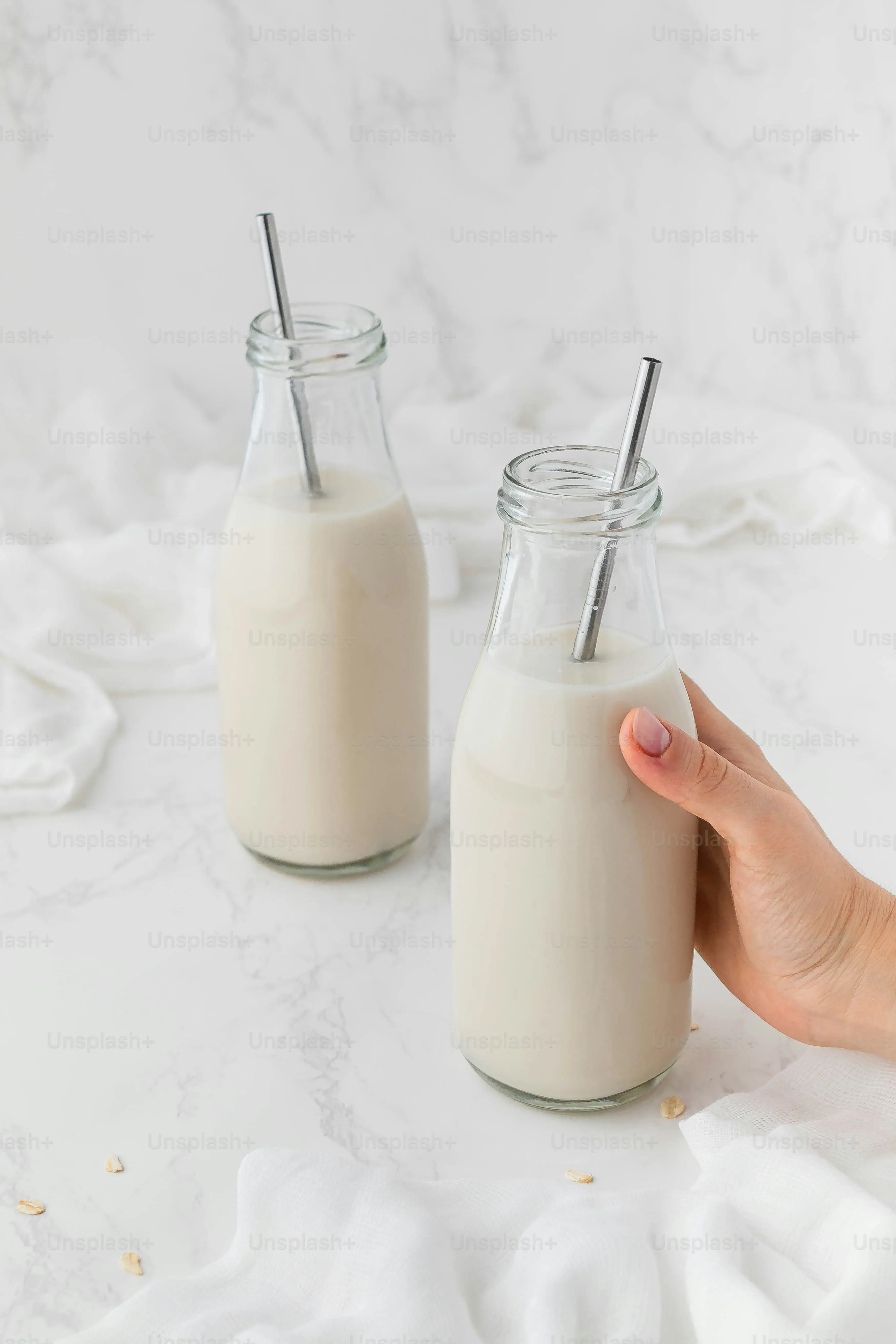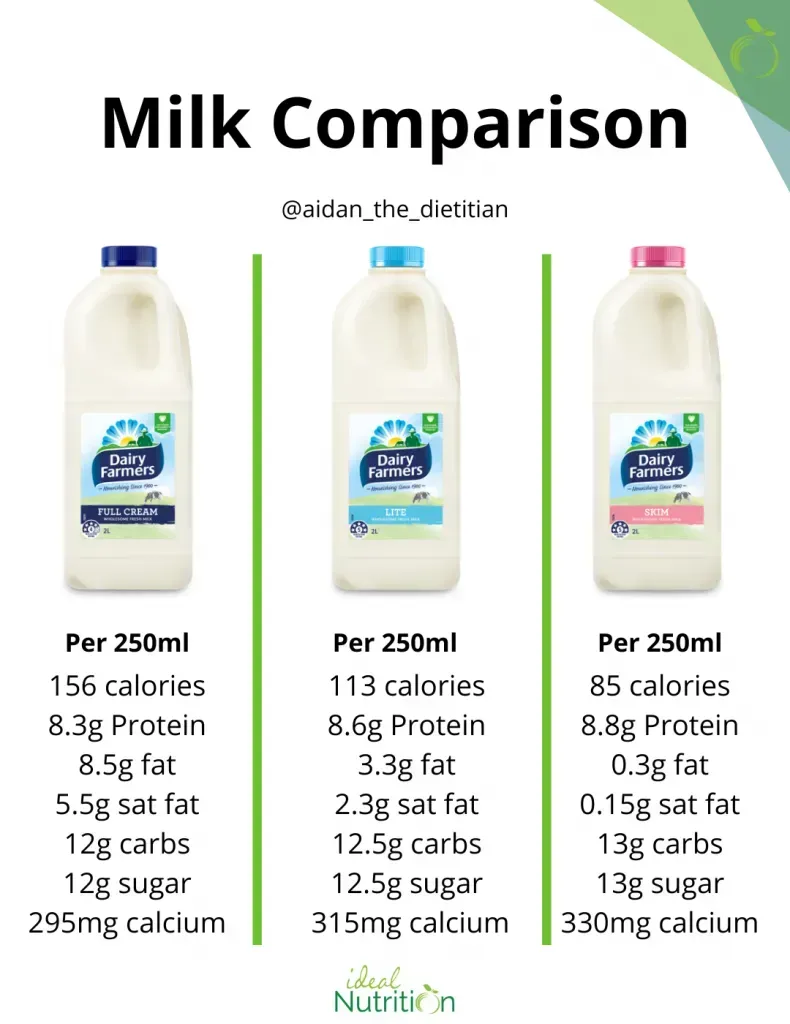Table of Contents
For decades, we heard the message loud and clear: ditch the whole milk, grab the low fat. It was simple advice, focused squarely on cutting saturated fat to protect our hearts. The thinking was, is low fat milk better than whole milk? Absolutely, end of story. But like many things we thought we knew for sure, the science surrounding dairy fat has gotten a bit more interesting lately. Those long-held beliefs are facing some scrutiny, prompting many of us to wonder if we've been pouring the "wrong" kind of milk all this time.
The DecadesOld Question: Is Low Fat Milk Better Than Whole?

The DecadesOld Question: Is Low Fat Milk Better Than Whole?
Man, remember growing up? It felt like overnight the dairy aisle flipped on its head. One minute, whole milk was just... milk. The next, everyone was whispering about saturated fat, and suddenly, cartons plastered with "Low Fat" or "Skim" became the heroes of the story. The official word came down: is low fat milk better than whole? Absolutely, if you cared about your heart. It was drilled into us – cut the fat, cut the risk. We swapped our creamy pour for the watery stuff, believing we were making the undeniably healthier choice, following the seemingly settled science. But lately, the nutrition world seems to be having a bit of a rethink, tossing a wrench into that long-held conventional wisdom and leaving a lot of folks wondering if they ditched delicious whole milk for nothing.
Inside the Carton: Fat Content and Nutrient Differences

Inside the Carton: Fat Content and Nutrient Differences
Alright, so let's pop the lid on these cartons and see what's actually inside, beyond the marketing hype. The most obvious difference, of course, is the fat. Whole milk typically clocks in around 3.25% milk fat. That might not sound like much, but it's enough to give it that rich, creamy texture we all remember. Move to 2% milk, and you've cut the fat down significantly. 1% milk goes even lower, and skim milk aims for practically zero, usually less than 0.5%. But it's not just the fat percentage that changes; when you strip out the fat, you also subtly alter the balance of other nutrients. The protein and most micronutrients like calcium and Vitamin D (often added) stay pretty consistent across the board, which is why skim milk is often touted as nutrient-dense – you get the good stuff with minimal calories from fat.
Saturated Fat: Is Low Fat Milk Better Than Whole for Heart Health?

Saturated Fat: Is Low Fat Milk Better Than Whole for Heart Health?
let's talk about the elephant in the room, or maybe the cow in the pasture: saturated fat. For years, it was public enemy number one, the reason we were told to swap whole milk for the low-fat stuff. The prevailing wisdom was simple: saturated fat raises LDL ("bad") cholesterol, and high LDL cholesterol leads to heart disease. Therefore, cutting saturated fat, like the kind in whole milk, was a direct line to a healthier heart. This is where the idea that low fat milk better than whole for cardiac health really took root. But science, as it often does, has complicated the picture. Newer studies and analyses suggest that the relationship between saturated fat and heart disease isn't quite so black and white. It seems the *source* of saturated fat and the overall dietary pattern matter a great deal more than just the total amount. Some research even hints that the saturated fat matrix within dairy might behave differently than saturated fat from, say, a cheeseburger.
Milk and Your Waistline: Is Low Fat Milk Better Than Whole for Weight?

Milk and Your Waistline: Is Low Fat Milk Better Than Whole for Weight?
Counting Calories: The Old School Approach
let's talk about the battle of the bulge. For years, the logic felt pretty simple, right? Fat has more calories per gram than protein or carbs. So, if you're trying to lose weight or just not gain it, cutting fat seemed like the most straightforward path. Skim milk has fewer calories than whole milk, sometimes significantly fewer depending on how much you drink. A cup of whole milk is roughly 150 calories, while skim is closer to 90. On paper, swapping whole for skim looked like an easy win for calorie cutting. This was a major pillar in the argument that low fat milk better than whole milk when managing your weight. It was just basic math, calories in versus calories out.
The Satiety Factor and Unexpected Findings
But here's where things get interesting, and frankly, a little confusing if you've been following the old rules. While skim milk has fewer calories, that fat in whole milk does more than just add calories; it adds satisfaction. Fat helps you feel full. Think about drinking a glass of watery skim versus a richer whole milk – one feels more substantial. Some studies have started suggesting that people who consume full-fat dairy don't necessarily weigh more than those who stick to low-fat. In fact, some research hints at the opposite, linking whole milk consumption to a lower risk of obesity and metabolic syndrome. It's counterintuitive, I know, after years of hearing the opposite, but the idea is that the fat might make you feel more satisfied, potentially leading you to eat less overall later on.
- Potential reasons whole milk might not sabotage your waistline:
- Increased satiety from fat content reduces overall food intake.
- Specific fatty acids in dairy might influence metabolism.
- The "dairy matrix" (how nutrients are packaged) could play a role.
- Associations seen in studies don't always prove causation.
Individual Results May Vary (Surprise, Surprise)
So, does this mean you should chug whole milk for weight loss? Probably not a wise conclusion. The research is still evolving, and "association" doesn't mean "cause." What works for one person's body and metabolism might not work for another. For some, the lower calorie count of skim or low-fat milk is the key to staying within their daily calorie goals. For others, the satiety from whole milk might genuinely help manage hunger better. It also depends on your overall diet. Are you pairing that milk with sugary cereal or a balanced breakfast? The context matters. The simple truth is, there's no single definitive answer yet on whether low fat milk better than whole milk specifically for weight management across the board. It's less about a universal rule and more about what fits into your personal dietary puzzle and helps you feel your best.
Who Should Pour What? Deciding If Low Fat Milk is Better Than Whole.

Who Should Pour What? Deciding If Low Fat Milk is Better Than Whole.
So, after wading through the saturated fat saga and the calorie conundrum, the million-dollar question remains: who should be pouring what? Is low fat milk better than whole milk for *you*? The honest, slightly unsatisfying answer is, it depends. If your doctor has specifically told you to drastically cut saturated fat due to existing heart conditions or sky-high cholesterol, sticking to low-fat or skim is likely the prudent path, aligning with older, but still relevant for some, dietary guidelines. However, for many otherwise healthy individuals, the picture is less clear. If you find that a splash of whole milk in your coffee or on your cereal makes you feel more satisfied and less likely to snack later, and it fits into your overall healthy eating pattern, the potential downsides seem less definitive than once thought. It's about looking at your entire diet, your health status, and frankly, what you enjoy and can stick with. There's no universal decree that low fat milk is definitively better than whole milk for everyone anymore.
So, Is Low Fat Milk Really Better Than Whole? The Takeaway
After decades of being told low fat milk was the undisputed champion, the picture looks a lot less clear today. The old directive, suggesting low fat milk is automatically better than whole milk for everyone, doesn't quite hold up under recent scrutiny. We've seen that the saturated fat conversation is more complex than a simple "avoid at all costs," and some studies even hint at benefits from full-fat dairy. Skim milk remains a nutrient powerhouse if calories are your primary concern. Ultimately, deciding if low fat milk is better than whole for you boils down to your overall diet, health status, and personal goals. There's no single "right" answer for everyone, and it seems the era of demonizing whole milk might finally be behind us. Choose the milk that fits your life, not just the one the old guidelines pushed.
